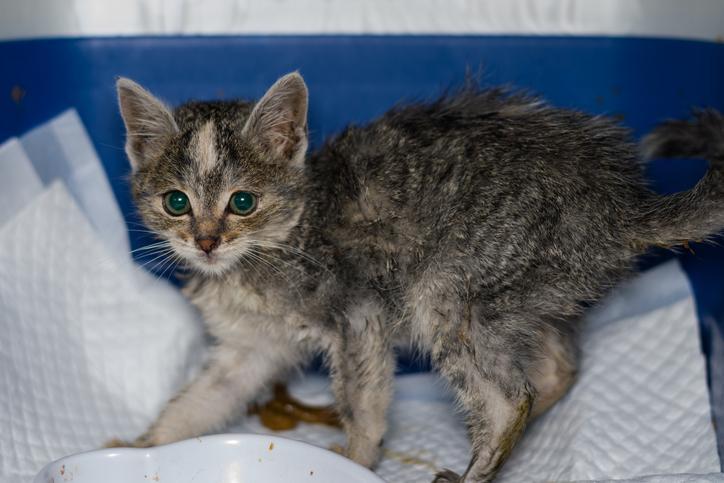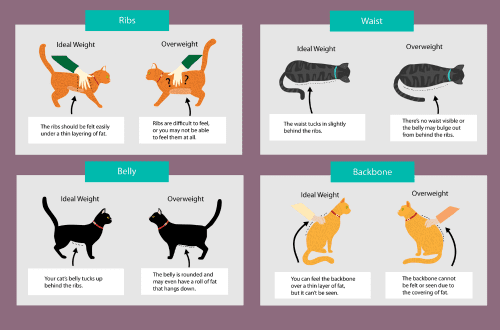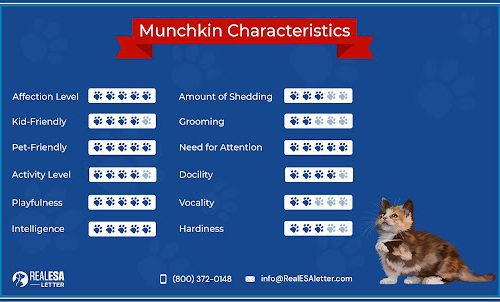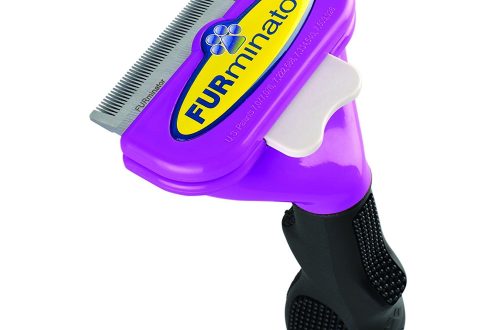
IBD или воспалителна болест на дебелото црево кај мачки: симптоми и третман
If the pet is sick, vomits, the doctor can diagnose colitis in cats. This is a common problem, and if the animal suffers from chronic diarrhea and/or vomiting, inflammatory bowel disease, or IBD, in cats may be the cause.
IBD, which is described as chronic inflammation of the intestines in cats, is one of the causes of colitis. IBD can affect different parts of the gastrointestinal tract, and the name of the disease depends on where the problem occurs.
If the disease affects the stomach, it is called gastritis, if the small intestine is enteritis, and if the large intestine is called colitis. In IBD, inflammatory cells invade the intestinal wall, disrupting the normal process of digestion. The cause of IBD in cats has not yet been identified, but is thought to be due to the interaction of a number of factors – diet, immune system function, and the state of the microbiome, which is the bacterial population in the gut.
содржина
How is IBD in cats different from irritable bowel syndrome (IBS)?
IBD is considered an autoimmune disease and is distinct from feline stress colitis, sometimes referred to as irritable bowel syndrome, or IBS. Bowel disease in cats results from inflammation and may be associated with autoimmune problems. In contrast, IBS occurs as a result of stress and often results in colon spasm, causing diarrhea. IBS is controlled through stress management, and IBD is controlled through diet and medication.
Bowel disease in cats: symptoms
Signs of IBD in companion animals include diarrhea, weight loss, vomiting, lethargy, and/or changes in appetite. Signs of colitis in cats are often manifested by increased appetite and frequent diarrhea. However, the cat may also experience decreased appetite, in which weight loss is common.
Inflammation of the intestines in a cat: how to diagnose
The diagnosis of IBD is made by ruling out other causes of vomiting and diarrhea. The veterinarian will most likely perform laboratory tests and investigations, including blood, urine, stool, and gastrointestinal tests. This is to rule out many diseases that may have the same symptoms as IBD. These include chronic pancreatitis, intestinal parasites, food enteropathy, intestinal dysbacteriosis, etc.
If all of these tests are negative, your doctor may recommend an abdominal ultrasound and/or a biopsy of the small intestine. A biopsy is the only way to definitively diagnose IBD. Follow the advice of your veterinarian for additional testing.
Treatment of IBD in cats
Treatment of intestinal inflammation in cats is carried out by a combined method: medication and diet therapy. According to veterinary internal medicine specialist Craig Rouault, BVSc, cum laude, PhD, Member of the Australian College of Veterinary Specialists (MACVSc), Diplomate of the American College of Veterinary Internal Medicine in Small Animals (DACVIM- SA), 60% of cats with chronic gastrointestinal disease improved after dietary therapy without steroids.
The therapeutic nutrition plan and dietary food for cats with colitis prescribed by the attending veterinarian is really useful for cats with IBD. And everyday food for this disease is not suitable.
Your cat may be recommended a diet with an unfamiliar low-fat protein, hydrolyzed protein, or special dietary fiber. It can be purchased at a veterinary pharmacy or online store as prescribed by your veterinarian. Some foods are sold directly at the clinic. Check with your veterinarian to see if one of the Hill’s® Prescription Diet® foods is suitable for your pet. If a therapeutic diet plan is recommended for a cat, she should not eat other foods. It is especially not worth experimenting during the transition to a new food so that the veterinarian can evaluate the success of this plan in treating the symptoms of IBD.
If a cat is diagnosed as deficient in cobalamin, vitamin B12 and/or folic acid, another B vitamin, which is common in many cats with IBD, appropriate vitamin supplements will be prescribed.
IBD is often accompanied by detrimental changes to the gut microbiome, resulting in poor gut health, such as an increase in bad bacteria that cause disease. If there is not enough beneficial symbiotic bacteria to aid digestion, your doctor will recommend a probiotic and/or a specialized diet containing prebiotic fibers. In particularly severe cases, or cases that do not respond to diet alone, steroids or other immunosuppressive drugs may be prescribed to the cat.
Can colitis in cats be cured? Many chronic gastrointestinal diseases in cats, including IBD, cannot be cured but can be managed.
Diagnosis and treatment of IBD in cats can be a trial and error process, especially in cats that have more than one bowel problem. Identifying the underlying cause takes time and proper diagnosis, so it is important to maintain regular communication with the veterinarian, especially if treatment does not help. Together with veterinarians, it is possible to minimize the impact of the disease not only on the quality of life of the cat, but also on the quality of life of the family.
Видете исто така:
Мачката има дигестивни проблеми: зошто се случува и што да прави
Совети за помош на вашата мачка со вознемирен стомак
Некои причини зошто мачката може да се чувствува лошо после јадење
Како да знаете дали мачката боли? Знаци и симптоми на болести





